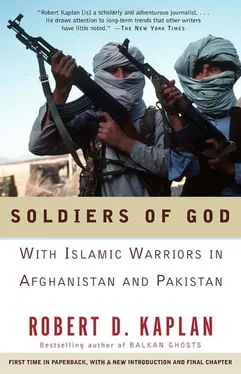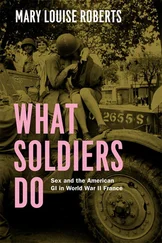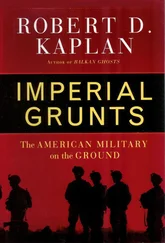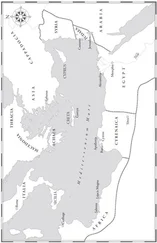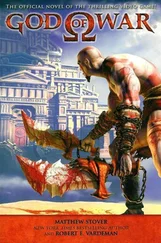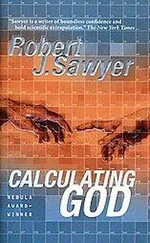* * *
On the map, the Northwest Frontier is just another province of Pakistan, along with Sind, Punjab, and Baluchistan. But for Westerners what made the Northwest Frontier the Northwest Frontier was not just its proximity to Afghanistan but the fact that culturally, topographically, and even, to a degree, politically — as far as the tribal areas were concerned — the province was part of Afghanistan, despite what the maps said.
For Afghan war freaks, a group that included locally based journalists, relief workers, and an odd assortment of barflies with questionable life stories, the Northwest Frontier’s tenuous link to Pakistan was something to be ignored, and even irritated and embarrassed about. In their minds, the very word Pakistan suggested the Indian subcontinent: a noisy, overcrowded, polluted, and closed-in space seething with devious, money-hungry, and weak people who were morally and physically inferior to the heroic men who inhabited the pure open spaces of central Asia on the other side of the Khyber Pass, where adventure beckoned. An American from Wyoming or Montana might look upon New Yorkers in much the same way. This was, in fact, how the wild and woolly Afghans, particularly the Pathans, looked upon their Pakistani hosts. The same prejudices were transferred to many of the Afghans’ foreign supporters.
On the Northwest Frontier, a Pakistani usually meant a Punjabi, someone originally from the adjacent province of Punjab, in the industrial and agricultural heartland of Pakistan. To an Afghan — and therefore to the war freaks — all Punjabis looked and acted the same. They were dark, beaky, and mustachioed, and oozed a false sophistication. They jabbered like birds in their piercing rattle of a language and banged into you on the street with their “Third World briefcases”: cheap, pretentious-looking constructions of plastic and cardboard with cumbersome locks, which held nothing but a few slices of flat bread and soft-porn movie magazines. Punjabis were physically frail compared to Afghans and were either too skinny or too fat. Pathans ate meat; Punjabis ate dal, a lentil-based gruel. Punjabis were thought to be spineless and without principles; regardless of their commitments, they were poised to sell you out once the price became high enough. In The Way of the Pathans, James W. Spain, a U.S. diplomat in the region, relates how his Pathan guide looked down on his Punjabi tonga driver: “I know that fat Punjabi,” the guide told him. “He is a snake.”
In the Pathan mind, Punjabis acted like women. And women, according to a Pathan, are physically weak, shifty, and tempestuous. The war freaks went a step or two further, declaring Punjabis “brain dead,” unable to follow even simple orders or to think for themselves. On the Northwest Frontier, the only thing worse than a Punjabi was a Hindu. At least Punjabis on the Pakistan side of the India-Pakistan border were Moslems, and that connoted a fierce, fanatical, and therefore martial (read manly) culture — even if, as everyone on the Frontier supposed, Punjabis had “religion on their lips and money in their hearts.” Hindus practiced a religion that was subtle and introverted, which meant it was feminine. Hindus were concerned only with their personal salvation and not with the duty of a man to his tribal kinsmen. Their religion attracted hippies, mystics, and homosexuals. Hindus lacked all honor: the official policy of their country, India, was to support the Soviet occupation of Afghanistan. Pakistan at least backed up the mujahidin and was caring and providing a home for three and a half million fellow Moslems from Afghanistan, though not even this fact would get the war freaks to change their minds about the Punjabis.
That’s because they all knew that it wasn’t the “filthy Punjabis” who were providing a home for the refugees but Pakistan’s president, General Mohammed Zia ul-Haq, backed up by hundreds of millions of American taxpayers’ dollars. Without Zia, the refugees might have been turned back at the border and massacred or starved to death in their own country.
Zia’s most prominent opponent was Benazir Bhutto, the daughter of former Premier Zulfìkar Ali Bhutto, who was executed by Zia in April 1979. The Bhutto family was Sindhi, but in the lexicon of the Northwest Frontier, Benazir, as she was always called, might as well have been a Punjabi because she thought like one. Throughout the 1980s, her Pakistan People’s Party was on record as opposing the very presence of the Afghan refugees on Pakistani soil. Benazir was attractive and telegenic, but she was also willing to consign millions of refugees to a horrible fate. Only when it became clear that Zia’s gamble had paid off and the Soviets were going to withdraw from Afghanistan did she begin to shift her position regarding the refugees.
Benazir, the thinly disguised “Virgin Ironpants” of Shame, Salman Rushdie’s novel about Pakistan, fooled no one on the Frontier with her Oxbridge English and her calls for “free elections.” Free elections were the war freaks’ nightmare: Why should those millions of treacherous Punjabis be allowed to decide the fate of the refugees and mujahidin? No, never. “Not for another twenty years should there be free elections in Pakistan,” said one Western relief worker. Many stories circulated about the things Punjabis said about the Afghans: “They’re making so much trouble for us.” “Why don’t they just go back home?” (Never mind that there was a war on, millions of land mines, and no food.) “It’s those refugees who are planting all the bombs in our cities.” (Never mind that the evidence indicated that it was the Communist authorities in Kabul, through their Soviet-backed intelligence service, KhAD, who were responsible for the terrorist bombs.)
Zia, with his slicked-back hair, deep-set hypnotic eyes, and trimmed black mustache, looked like the quintessential Punjabi — touched by the devil. But he was also a tough Islamic disciplinarian who armed the mujahidin to the teeth. Benazir would never have come to power had Zia not been killed in an air crash in August 1988, for which KhAD and the KGB likely bear responsibility. As far as the war freaks and the Afghans were concerned, Zia was less a Punjabi than an honorary Pa-than.
After just a few weeks on the Northwest Frontier, a Westerner’s thinking along such sharp racist lines became natural. The Pathans really were waging a noble struggle. And many Pakistanis really were willing to cave in to Communist terrorism and run for cover behind flowery rationalizations. But as in other places in the Third World where journalists and relief workers inevitably found themselves on one side of a conflict, the border between “clientitis” and outright prejudice against the clients’ enemies was crossed too easily.
The journalists who covered the Afghan war regularly were different from any journalists I encountered before. Because traveling in the country was so dangerous, so physically punishing, and because the war rarely made the headlines, those who made going inside a full-time occupation were of necessity either deeply committed to the mujahidin cause or were war freaks who weren’t satisfied unless they were in danger and physical distress. Almost all were stringers on special contract or earning a living on a story-by-story basis. Most were weapons enthusiasts; Soldier of Fortune was among the most widely read magazines in Peshawar. If you had a story in S.O.F., every journalist in town soon knew about it — and nobody snickered, either.
Journalism in Peshawar was a self-consciously macho activity. Locally based newsmen made a point of smoking a lot and drinking hard. There was a distinct hostility toward the elite establishment media and the new brand of 1980s foreign correspondents who stocked their fridges with Perrier water and talked incessantly about their computer modems — the kind of journalists who came out to Peshawar for short visits, stayed at the deluxe Pearl Continental Hotel rather than at Dean’s, directed “hostile” questions at the mujahidin, and never went inside. The objectivity and priggish yuppie values of the establishment media had no place on the Northwest Frontier — a Wild West, sepia-toned outpost of masculinity where it was still possible to escape from the modern world.
Читать дальше
